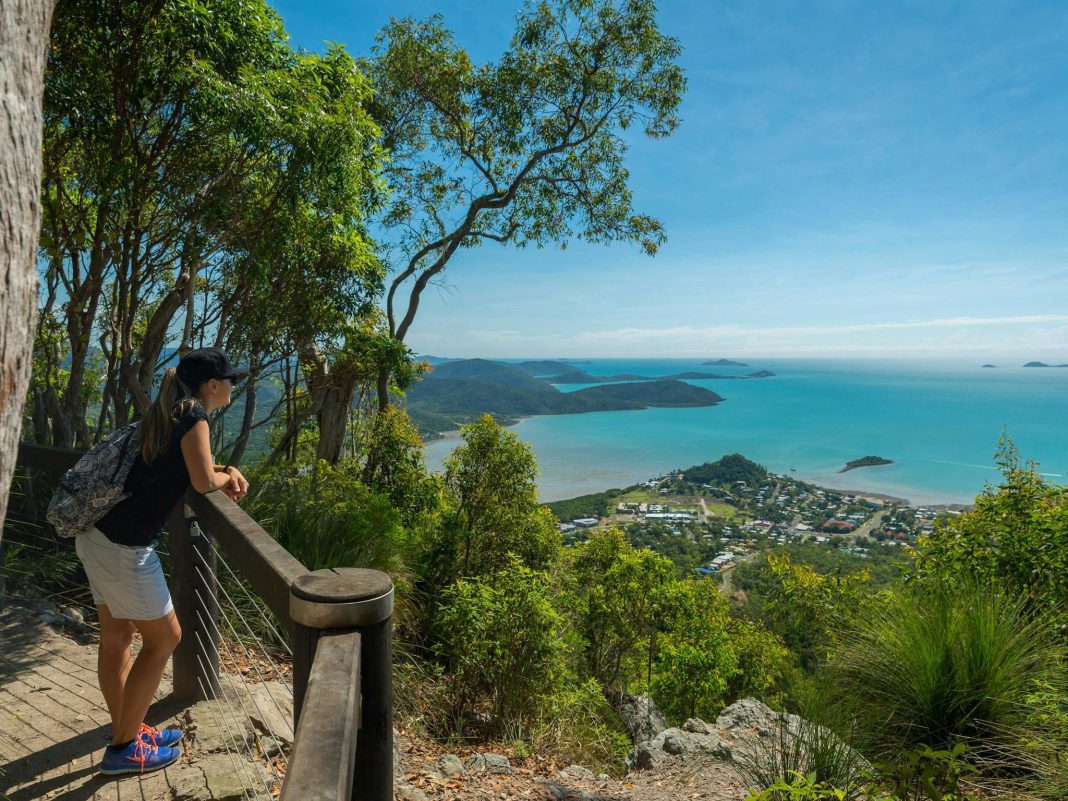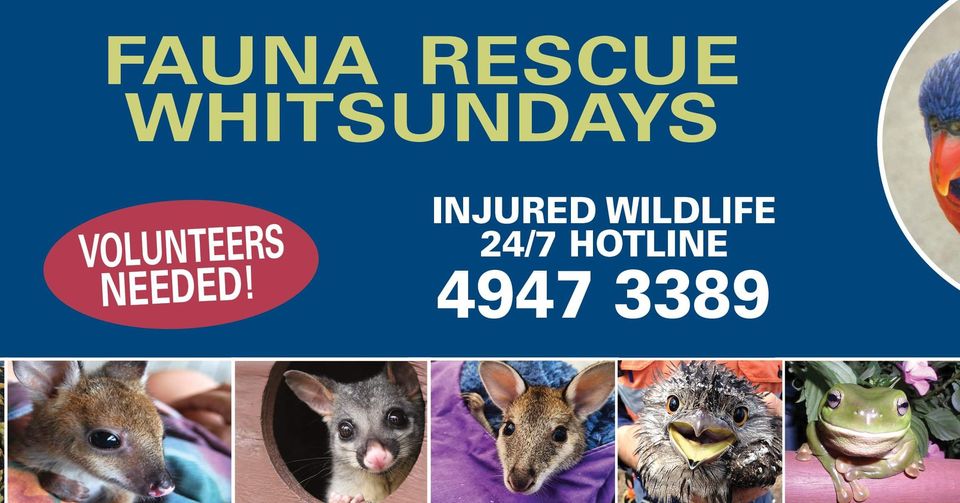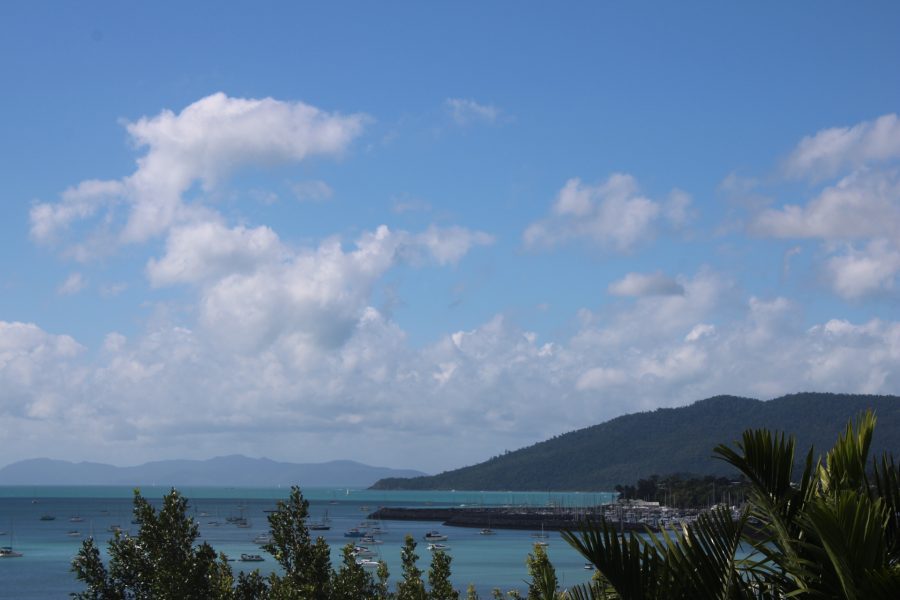Deborah Friend
AS THE Queensland Government Election gets ever closer, the credentials of the candidates are ever more scrutinised.
As Whitsunday residents go to the polls, this Saturday, October 26, 2024, it is important to know what the five candidates think and feel about varying topics.
The Whitsunday News liaised with the Whitsunday Conservation Council to come up with some questions that tested candidates on how they would tackle certain environmental issues, should they get into government.
Five candidates have nominated for the seat of Whitsunday: Peter Atchison, Family First Party, Amanda Camm, Liberal National Party of Queensland, Julie Hall, One Nation Queensland, Bauke Hovinga, Queensland Labor, and Elena Quirk, Queensland Greens.
Four of the five candidates responded – see their responses below. If Peter Atchison, Family First Party, responds, we will add his responses to this story.
QLD Election 2024 – Questions for the candidates – Sent October 15, 2024
1.
Do you support conservation of biodiversity as the primary purpose of National Parks and think that private, commercial development should not be allowed in National Parks?
2.
Given the current poor health status of the Great Barrier Reef, do you support Queensland’s current tree clearing and water quality regulations?
3.
Would you support communities having a local say in mining and renewable energy projects?
4.
Over the past decade, there has been much good legislation rolled out to reduce our use of plastics. Will you push for even stronger legislation in the immediate future?
5.
Large tracts of the region’s coast are vulnerable to erosion through severe storm events and sea level rise. How can your government assist the Whitsundays in mitigating and adapting to the threat?
NOTE: The candidates’ responses have been published exactly as they were received and are published in alphabetical order.
QUESTION 1
Do you support conservation of biodiversity as the primary purpose of National Parks and think that private, commercial development should not be allowed in National Parks?
Amanda Camm, Liberal National Party of Queensland:
National Parks are critical assets and should be valued and respected for the biodiversity they are underpinned by. They should also be well-managed to ensure this biodiversity is protected.
This includes ensuring any activity within or bordering a National Park is assessed, managed and regulated appropriately. I believe there is a balance that can be achieved with open and transparent management, community engagement, resourcing and investment.
I believe the current State Government have failed in their responsibility and custodianship.
Julie Hall, One Nation Queensland:
Queensland is a beautiful place to live or visit, with a unique natural environment creating a strong appeal.
One Nation will enhance the enjoyment of our environment by local communities and visitors by:
- improving public and visitor access to National Parks in Queensland
- maintaining and improving natural spaces
- investing in recreational infrastructure such as parks, walking trails and scenic lookouts to facilitate enjoyment of the natural environment
- supporting tourism initiatives which promote sustainable practices and conservation
Bauke Hovinga, Queensland Labor:
Our Labor Government is committed to protecting environmentally and culturally significant areas. We also support ecologically sustainable ecotourism opportunities within and adjacent to Queensland’s protected areas.
Under Labor, National Parks are required to be managed ‘to the greatest possible extent, for the permanent preservation of the area’s natural condition and protection of the area’s natural resources and values’ and also to ‘provide opportunities for ecotourism in a way consistent with the area’s natural and cultural resources and values’.
All ecotourism proposals on protected areas are subject to rigorous assessment and approval processes that consider the environmental, cultural, social and financial impacts of the proposal on the area, providing for an overall positive benefit to our parks and other protected areas.
Elena Quirk, Queensland Greens:
We support First Nations land management and eco-tourism ventures in the vicinity of National Parks. However, it’s unacceptable for the Government to hand over National Park land to private corporations whose primary motive is profit.
This contravenes the ‘cardinal principle’ of the Nature Conservation Act, which aims to conserve our National Parks, not offer them up for profit.
We would protect National Parks from commercial development, particularly leases over national park land to profit-seeking corporations. The Greens would increase Indigenous Land and Sea Rangers jobs, ensuring cultural burning practices are reflected in our land management regime.
We’d expand protected areas like National Parks to cover 17 per cent of the State and involve First Nations ownership of National Parks.
Finally, the Greens would strengthen our laws to protect nature and create an independent Environmental Protection Authority (EPA) with adequate funding.
QUESTION 2
Given the current poor health status of the Great Barrier Reef, do you support Queensland’s current tree clearing and water quality regulations?
Amanda Camm, Liberal National Party of Queensland:
There are parts of the Great Barrier Reef where the health has improved and parts where there is a decline.
Our region has demonstrated leadership when it comes to valuing our natural environment and Great Barrier Reef Marine Park, from citizen science, industry reform and collaboration across many sectors.
I do not support scare mongering and the vilification of any industry. Every sector and individual has a responsibility in the way we impact the environment including waterways, soil health and the reef.
Julie Hall, One Nation Queensland:
Water is life, so it’s important we work to ensure Queensland’s natural waterways are clean and healthy in the environmental conservation effort.
One Nation will ensure our waterways are sustainable and healthy by:
- managing any industrial discharges or agricultural run-off with education, incentives and appropriate regulations and laws
- investing in water treatment facilities and water quality monitoring
- promoting responsible water use in rural and urban areas
- ensuring the highest quality objective science is used to assess the impact of coastal water discharge on the Great Barrier Reef.
Bauke Hovinga, Queensland Labor:
The Great Barrier Reef is the jewel in Queensland’s environmental and tourism crown. It was our Labor Government that re-introduced robust tree clearing laws after Campbell Newman and David Crisafulli watered down previous laws.
Under our laws, there was a 64 per cent decrease in regulated vegetation clearing over the four years to June 30, 2022. A re-elected Miles Labor Government will continue to work to further reduce tree clearing, especially in reef catchments.
We are making progress in achieving our ambitious water quality targets. Our government recently reviewed the Reef Regulations, and they are working and we are committed to them. We have also committed close to $290 million to improve the quality of water flowing from land to the reef.
Elena Quirk, Queensland Greens:
Given that Queensland’s tree-clearing rate is among the worst in the world, and UN scientific advisors consider our beautiful reef to be at ‘serious threat’, the Greens see room for improvement. We would disallow offsets for clearing of endangered or near threatened remnant and high value regrowth vegetation.
We would seek to amend the Vegetation Management Act to protect endangered, near threatened and high conservation value regrowth vegetation, all remnant and high value regrowth vegetation in urban areas, and vegetation in riparian and wildlife corridors.
The Greens would develop a Water Quality Improvement Plan for all Queensland catchments and provide adequate resources for various agencies and groups to reach the plan’s targets.
We’d also provide resources and support for the establishment of an Agricultural Rivers Partnership Program, to enhance knowledge sharing between farmers, as key landscape managers of food productive land, to enable runoff quality control.
QUESTION 3
Would you support communities having a local say in mining and renewable energy projects?
Amanda Camm, Liberal National Party of Queensland:
The LNP will reform and enhance assessment criteria for all renewable projects and bring them into line with mining projects to ensure community and environment impact assessments are of the same high standard.
Julie Hall, One Nation Queensland:
One Nation does not subscribe to the impractical pursuit of ‘net zero’ carbon dioxide emissions from Australia by 2050, particularly through the destruction of our natural environment and prime agricultural land from installation of wind and solar farms.
In line with other countries winding back their emissions reduction targets in the face of reality, One Nation will advocate for the removal of Australia’s ‘net zero by 2050’ policy and promote an independent energy policy that leverages Australia’s natural energy resources for reliable and affordable power.
Bauke Hovinga, Queensland Labor:
The Miles Labor Government strongly supports communities having their say on resources and renewable energy projects.
The environmental regulator already seeks public feedback on resources projects and that will continue. The Miles Government has recently announced enhanced regulations and community feedback for renewables projects.
A new Wind Code has been released and we are currently consulting the community on a draft Renewables Regulatory Framework. We have also been working with regional communities to co-design the nation’s first mandatory Code of Conduct.
The code will hold renewable energy developers to the highest standards and ensure they engage genuinely with communities, including First Nations groups and landholders, when developing, building and operating new generation and storage projects.
Elena Quirk, Queensland Greens:
The Greens would be open-minded to a consultative process for local views on the placement of mining and renewable energy projects.
The Greens have fought for better environmental regulations and clearer planning rules that mean delivering renewable energy without undermining local communities or causing environmental destruction.
We have been clear at all levels of government that all renewable energy projects must be subject to a comprehensive, consultative and evidence-based assessment of its social, cultural and environmental impacts, including detailed consideration of its alternatives.
QUESTION 4
Over the past decade, there has been much good legislation rolled out to reduce our use of plastics. Will you push for even stronger legislation in the immediate future?
Amanda Camm, Liberal National Party of Queensland:
Our region has led the advocacy and been the shining example in plastic reduction and reform, and our Whitsunday Regional Council should be recognised.
There is always more to do and opportunities to improve and I will advocate on behalf of the community where there is opportunity to do so. I welcome suggests for reform, innovation and improvement in this area.
Julie Hall, One Nation Queensland:
The Great Barrier Reef, Queensland’s coastal area and marine environment present a major conservation challenge.
One Nation will protect our marine environment by:
- encouraging sustainable, low-impact commercial and recreational fishing
- better monitoring and policing of territorial waters to prevent raids on Queensland fisheries by foreign vessels
- ensuring the highest quality objective science is used to assess the impact of coastal water discharge on the Great Barrier Reef
- promoting the health of the Great Barrier Reef and the measures employed to keep it that way
- investing in marine conservation research and development.
Bauke Hovinga, Queensland Labor:
Plastic pollution impacts the health of our communities, environment and wildlife. That’s why the Miles Government is strongly committed to removing plastic waste from our society.
Thanks to our Labor Government, Queensland is a national leader in removing harmful single use plastics from the community.
In recent years, we have banned a wide range of single use plastics items including straws, stirrers, plates, bowls, cutlery and, most recently, cotton buds with plastic stems and expanded polystyrene loose packaging.
But there is more work to be done and we are committed to continued action and are working with other state and territory governments to develop and implement a draft roadmap for national harmonisation of actions on problematic plastics and plastic items.
Elena Quirk, Queensland Greens:
Yes. As long as plastics are continuing to escape into our environment and be used at unsustainable rates – polluting our pristine Whitsunday Island beaches and breaking down into ever smaller and numerous microplastics in our bodies, our oceans and forests – stronger legislation will be needed.
QUESTION 5
Large tracts of the region’s coast are vulnerable to erosion through severe storm events and sea level rise. How can your government assist the Whitsundays in mitigating and adapting to the threat?
Amanda Camm, Liberal National Party of Queensland:
The LNP have announced we will work with local councils in regards to disaster mitigation. This includes looking at strategic long-term betterment infrastructure.
Climate adaptation is part of sustainable planning that must be acknowledged, and investment infrastructure will also support competitiveness in the insurance sector.
Insurance is one of the major cost imposts for our region and we need to be doing all we can to address high insurance premiums.
Julie Hall, One Nation Queensland:
Biodiversity is a key measure of environmental health and also provides significant agronomic benefits in agricultural production. Queensland’s flora and fauna are unique and must be protected through effective conservation measures.
One Nation will promote conservation and biodiversity by:
- promoting responsible land and water management by industry, and funding targeted conservation programs
- promoting responsible use of natural resources – especially water – balancing economic interests while prioritising prosperous regional communities
- encouraging and funding habitat and landscape restoration where there is an economic return, and mandating this through environmental rehabilitation bonds on energy projects
- protecting iconic native flora like koalas from the expansion of wind and solar farms.
Bauke Hovinga, Queensland Labor:
The Miles Labor Government accepts the science that climate change is contributing to more severe and frequent natural disasters and sea level rises. In response to the threat of climate change, we have legislated our greenhouse gas emissions targets of a 75 per cent reduction in emissions by 2035 and net zero emissions by 2050.
We have also legislated ambitious renewable energy targets, including an 80 per cent renewable energy target by 2035. As part of our Government’s Queensland Climate Adaption Strategy, we are also partnering with local governments and communities to develop adaptation strategies for coastal hazards such as erosion, storm tide inundation and the projected effect of rising sea levels.
Elena Quirk, Queensland Greens:
We must not only work to reduce further warming of our environment by fossil fuel emissions, we must also try to help the Whitsunday community adapt to the damage already locked in by past emissions.
The Greens will introduce a well-resourced and high-capacity Climate Crisis Office with whole-of-government responsibility for the equally weighted priorities of mitigation, adaptation and climate crisis communication: Policy, strategy and funding.
Other Whitsunday News stories about the 2024 Queensland Government Election:
Candidates grilled ahead of state election | Whitsunday News
Chamber urges election candidates to focus on vital road infrastructure | Whitsunday News
‘Queenslanders are in danger on the Bruce Highway’ | Whitsunday News






